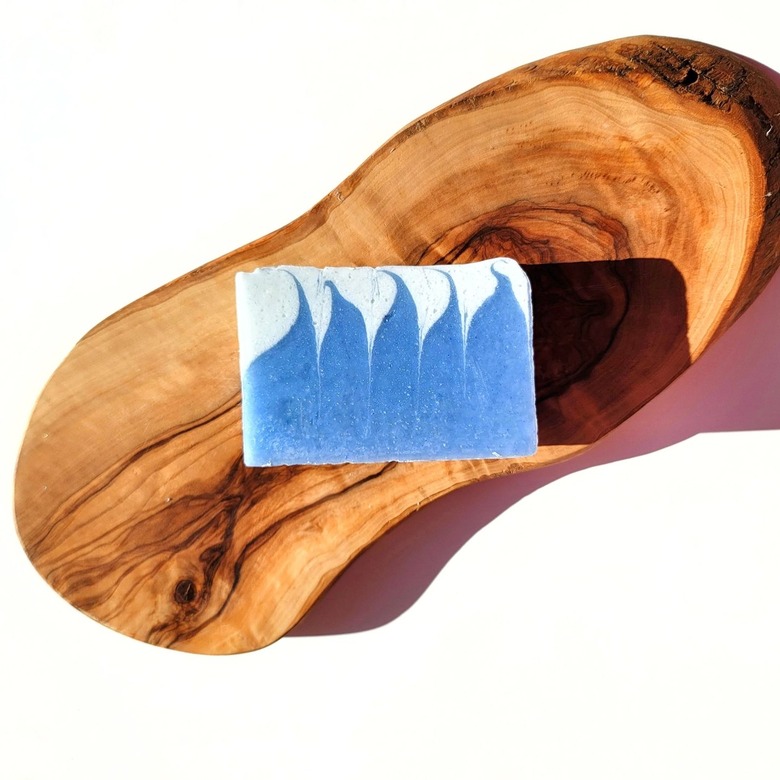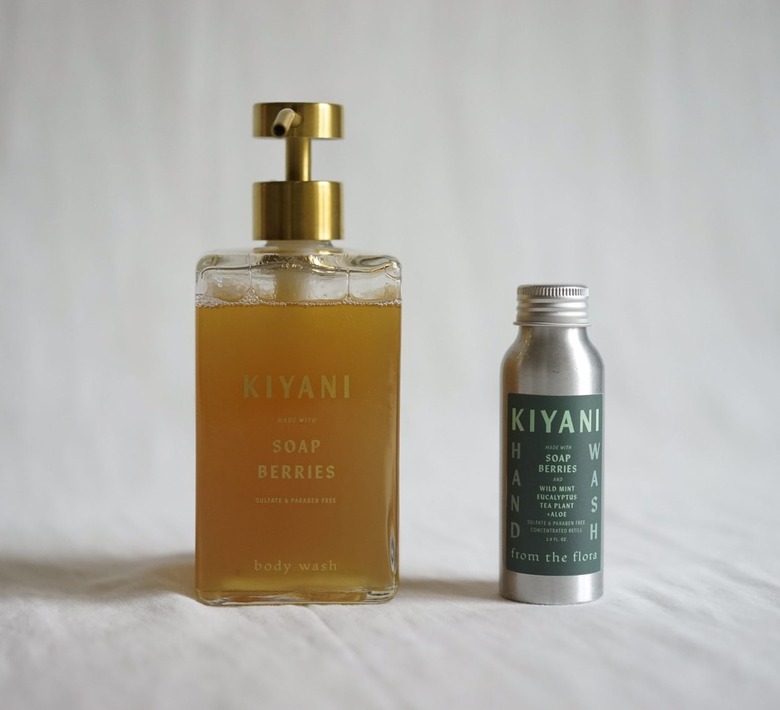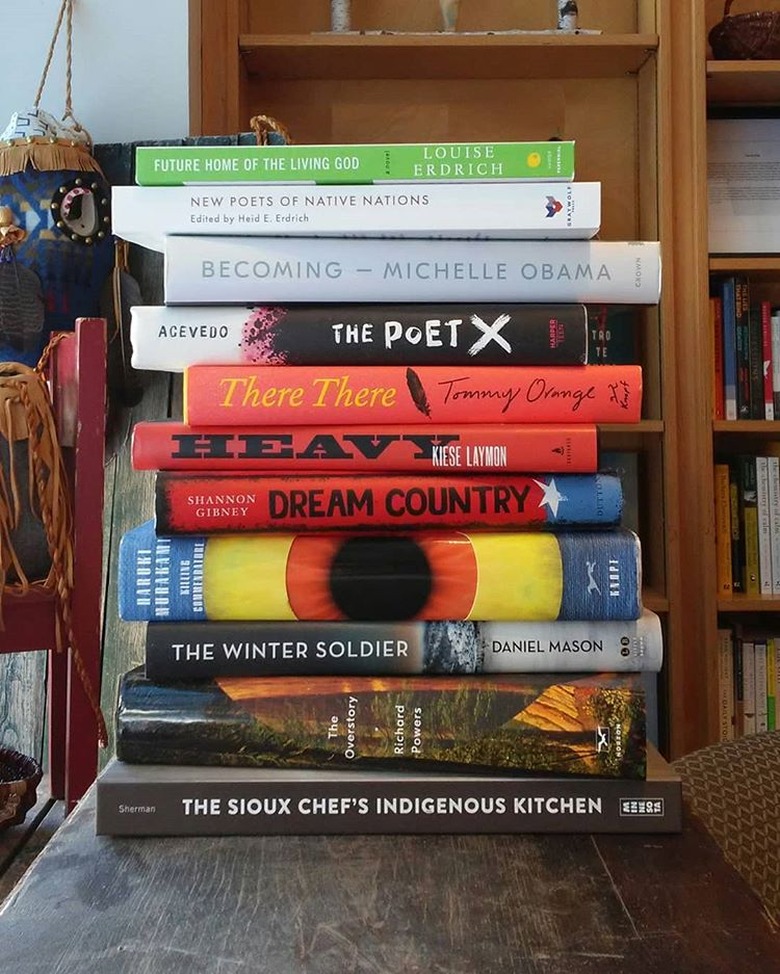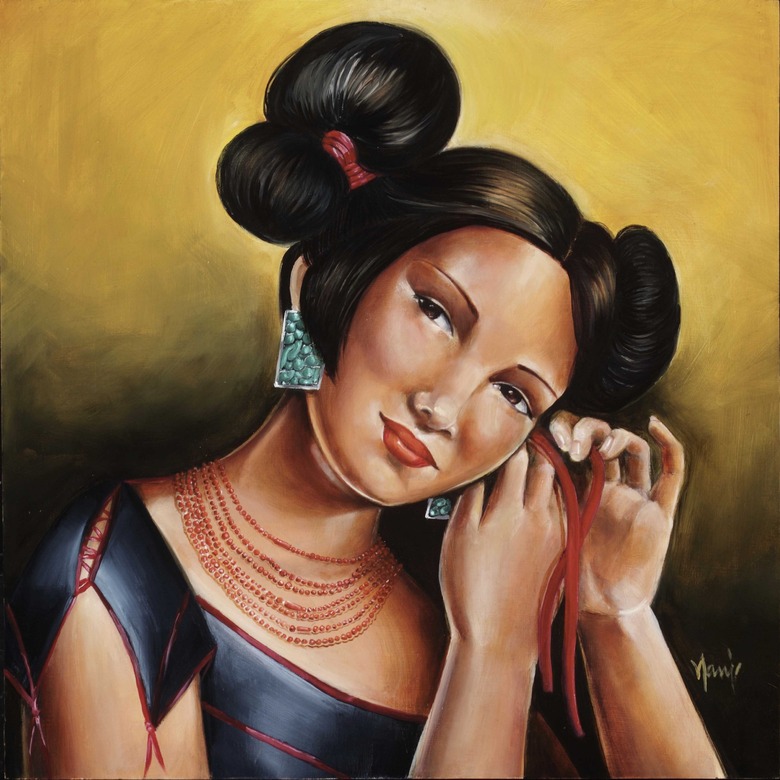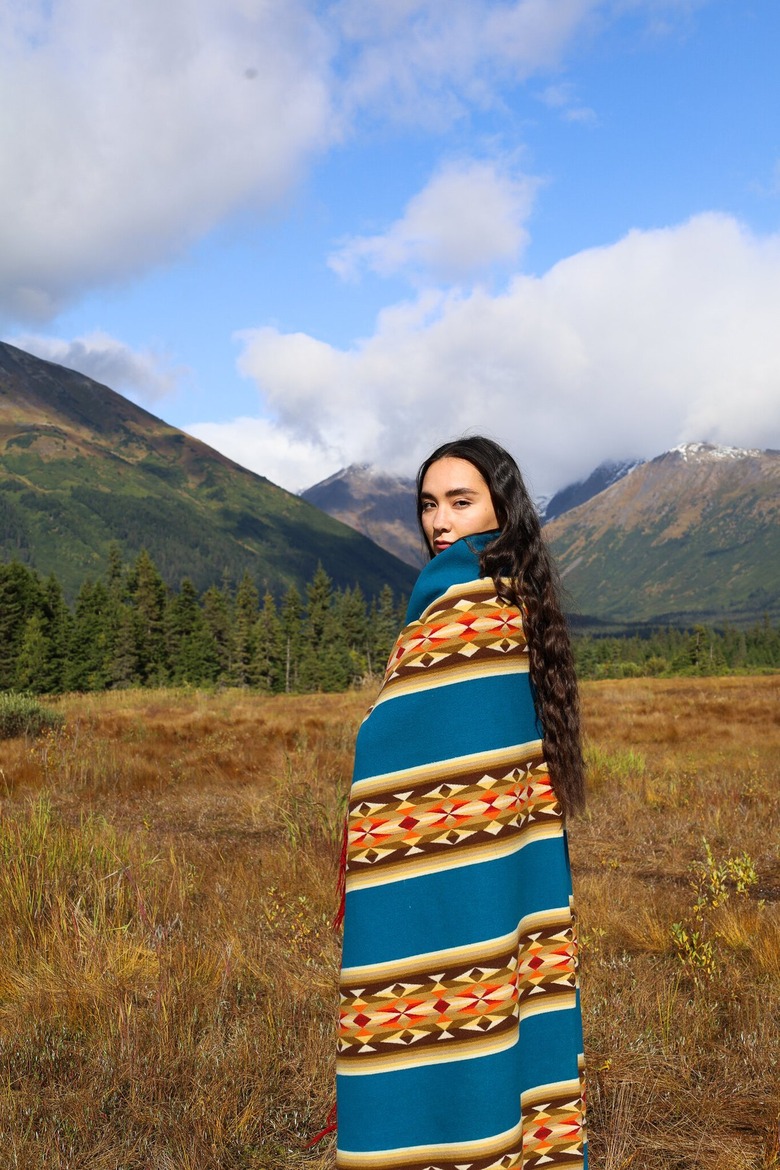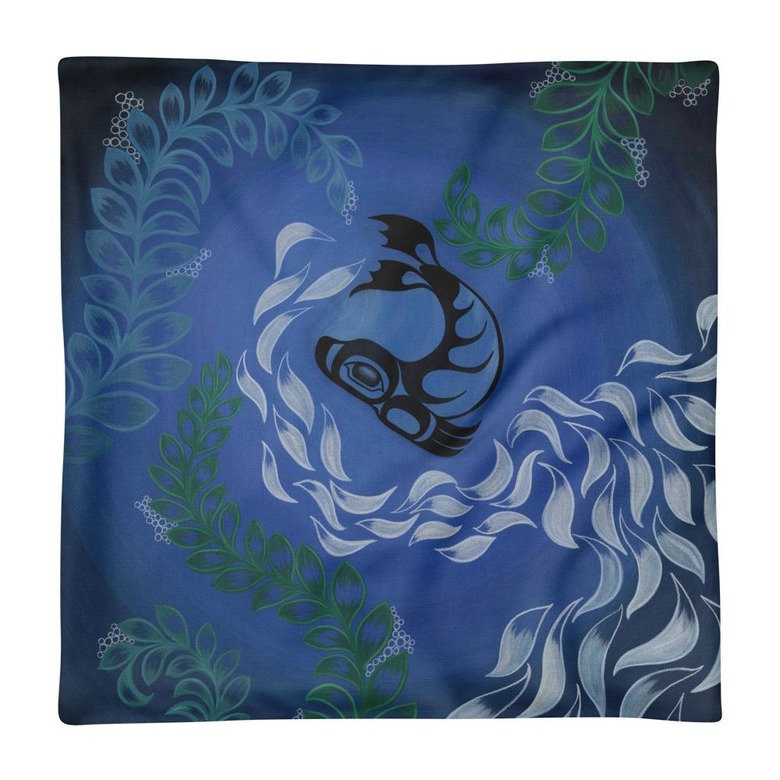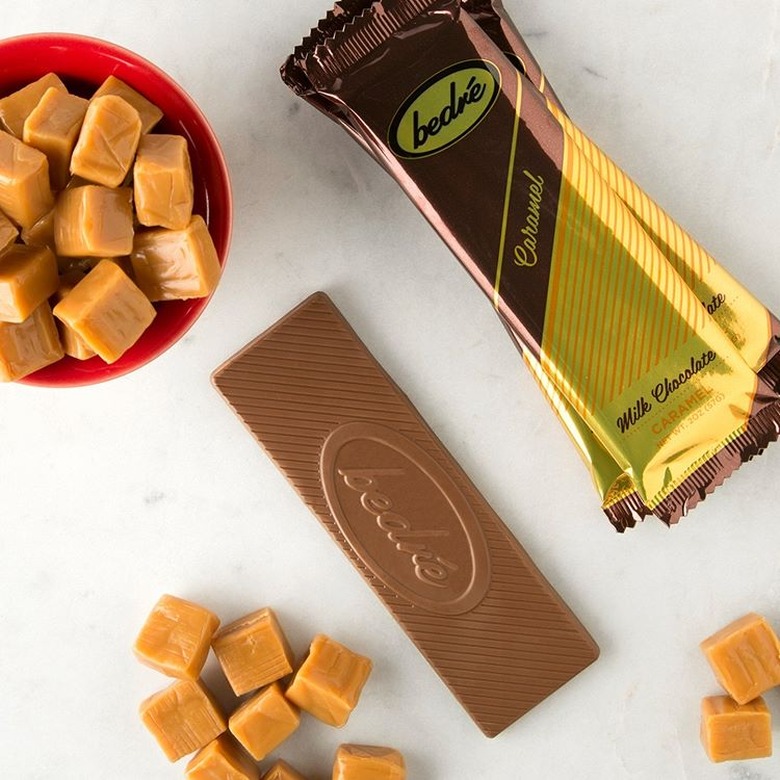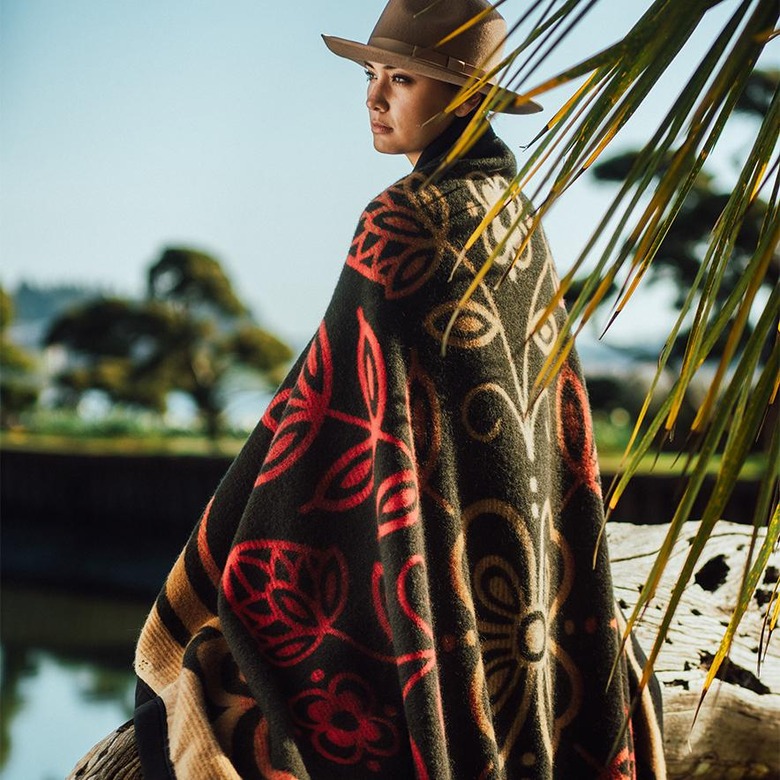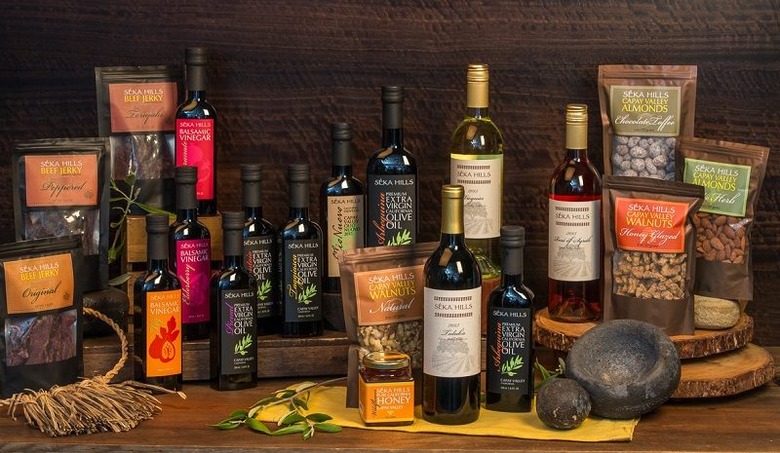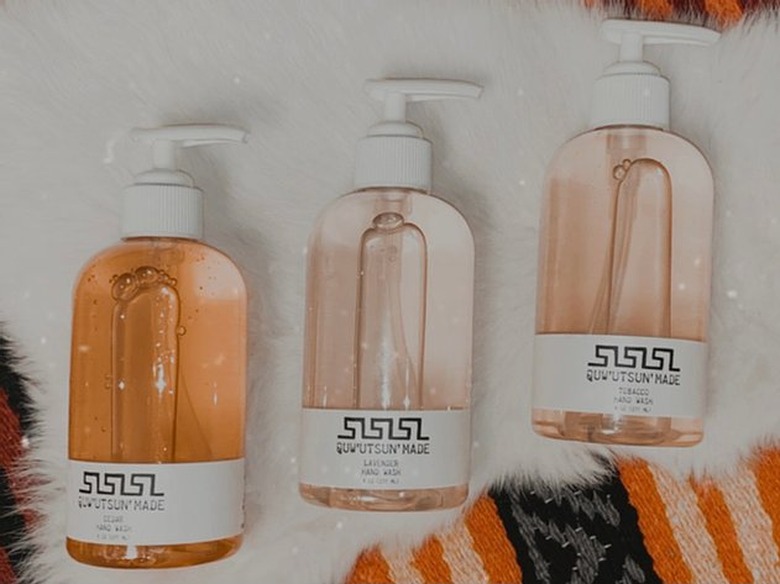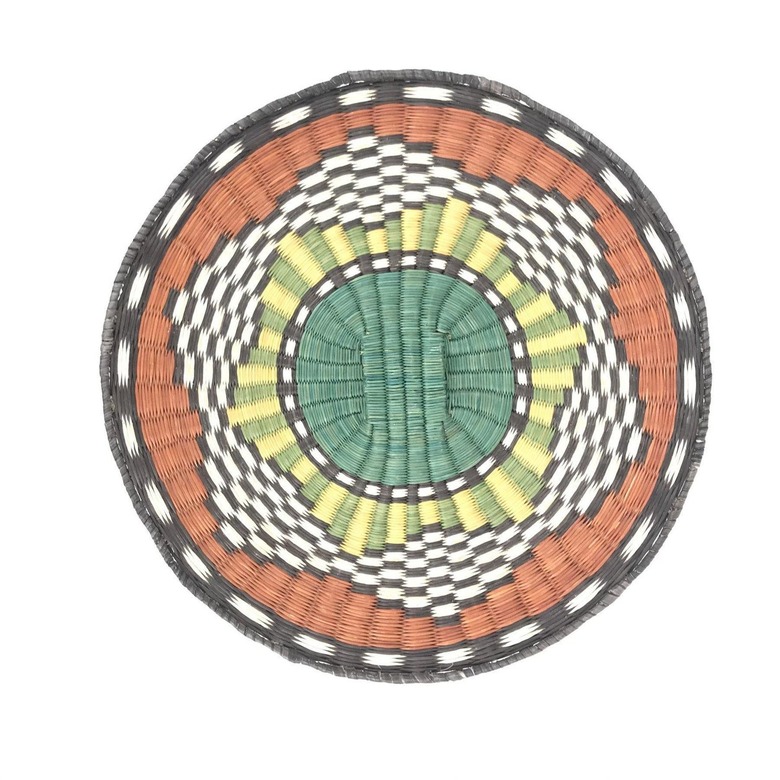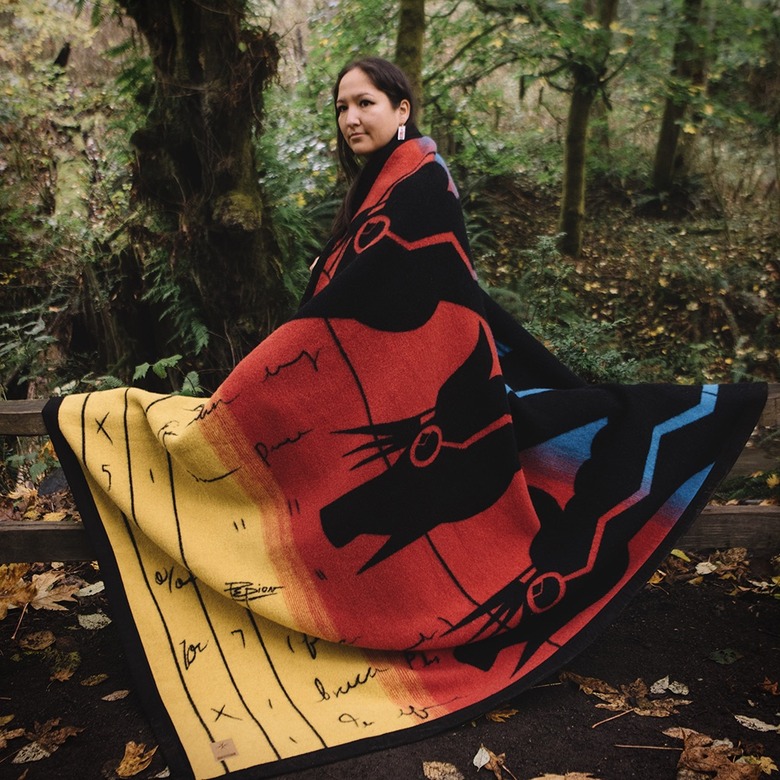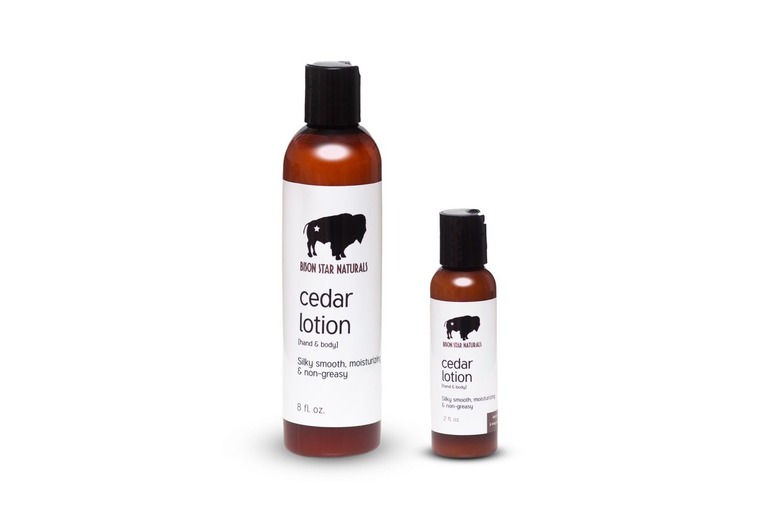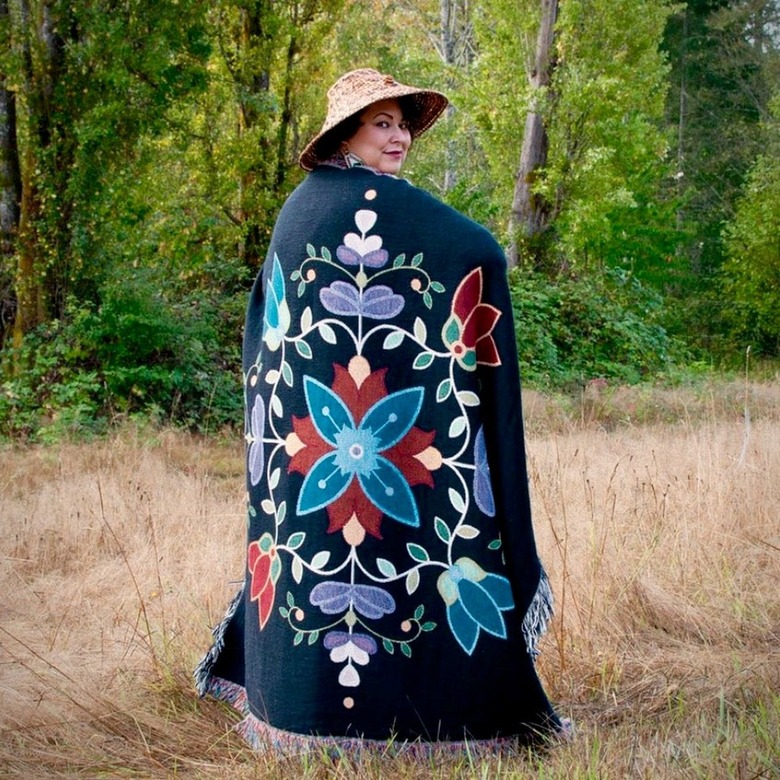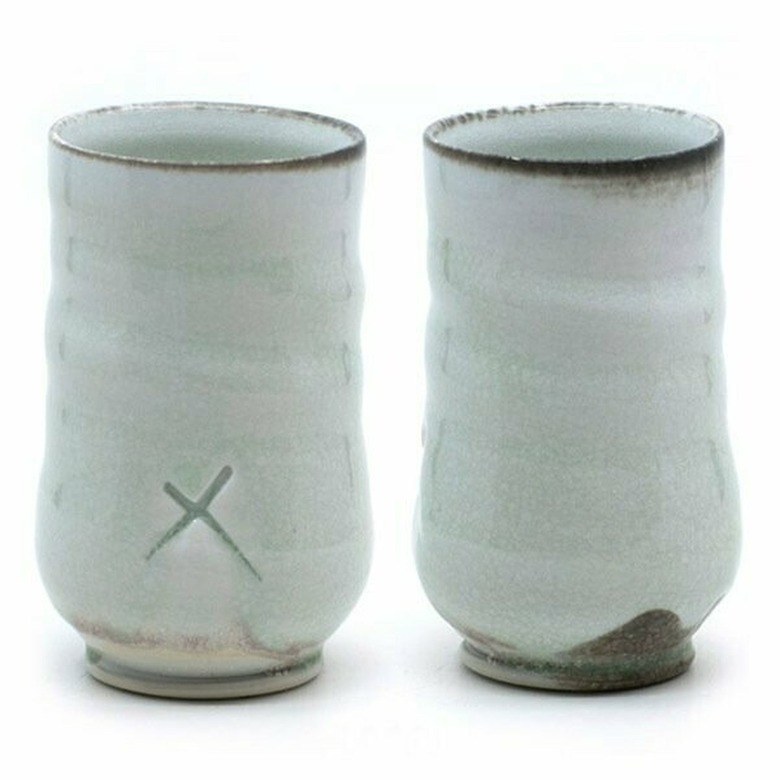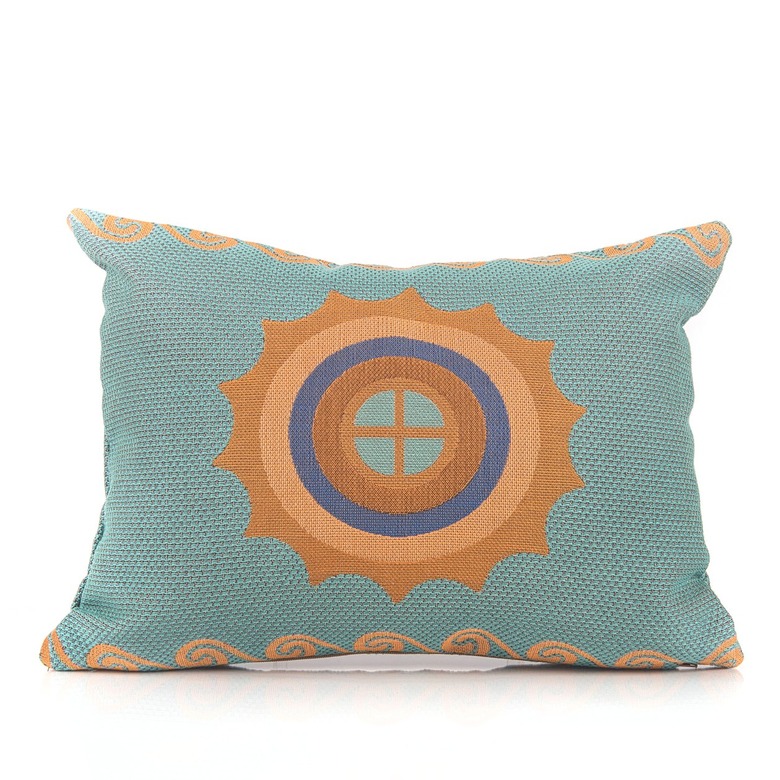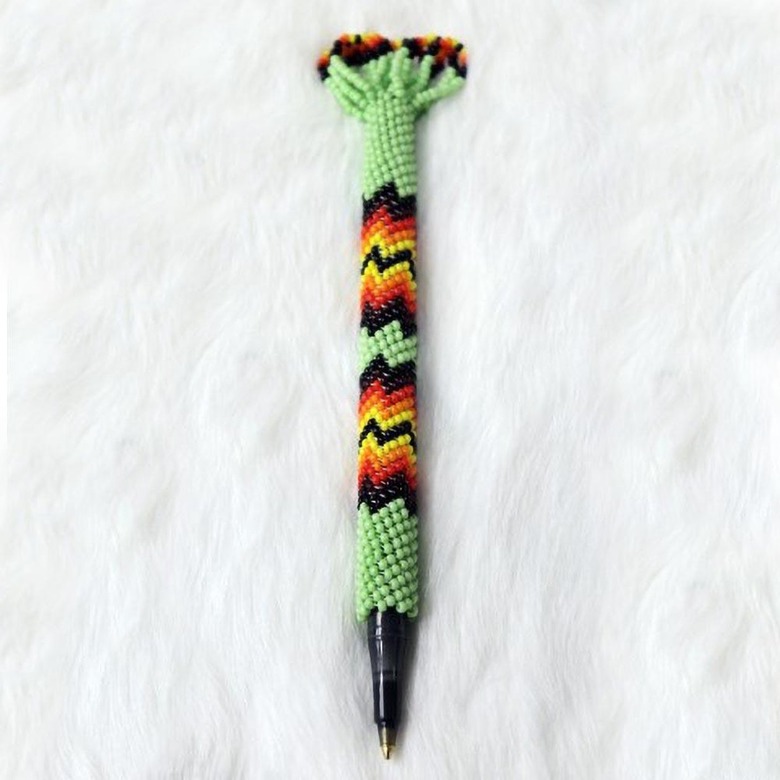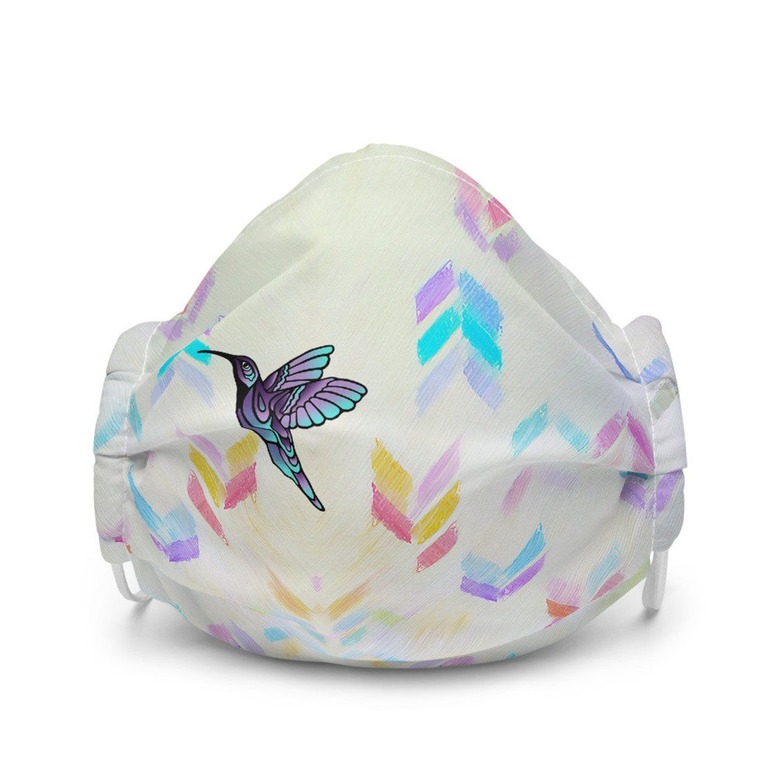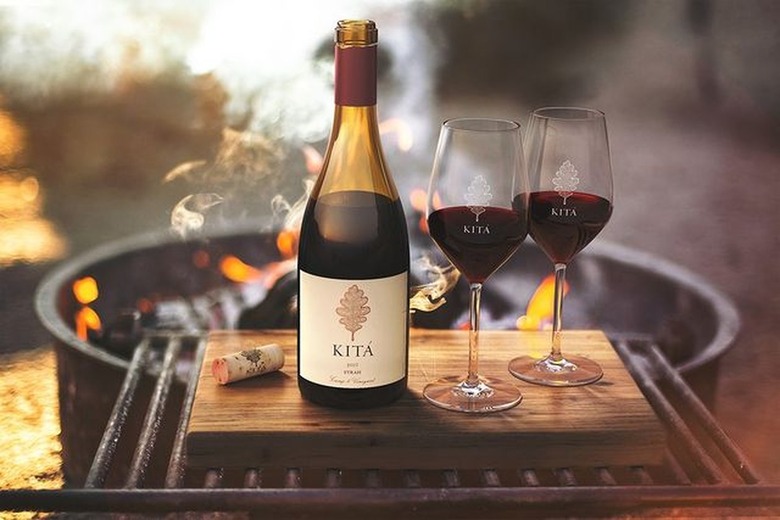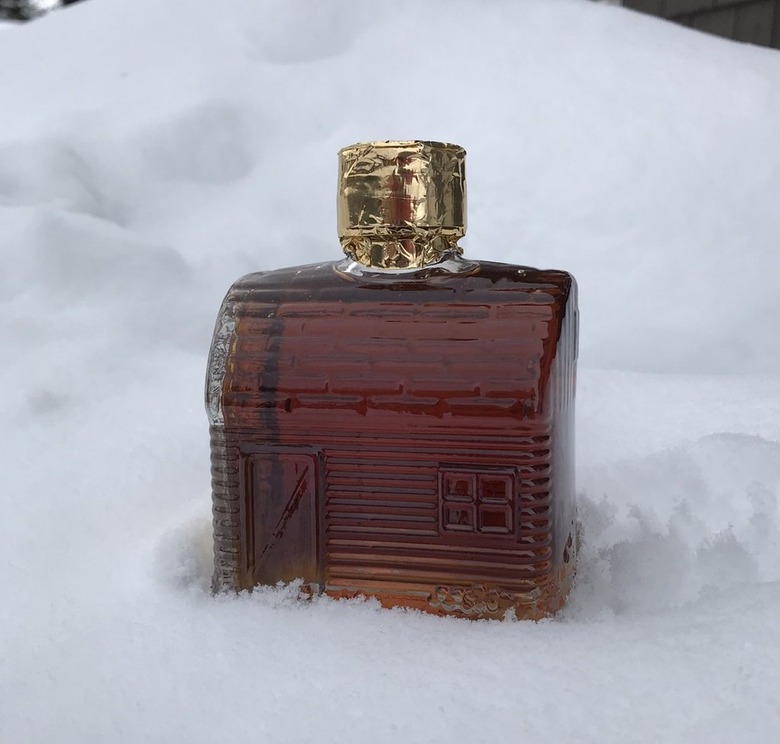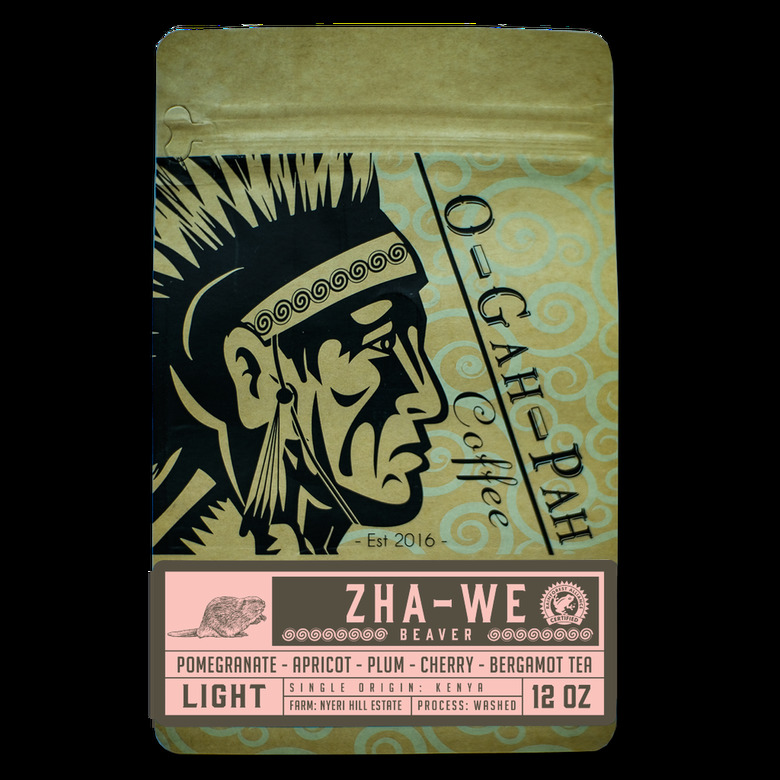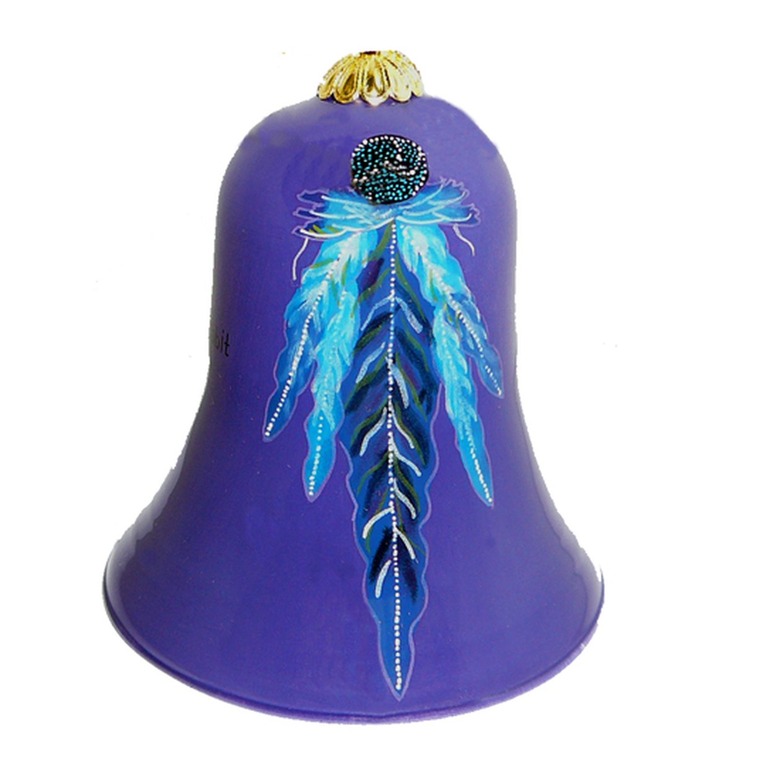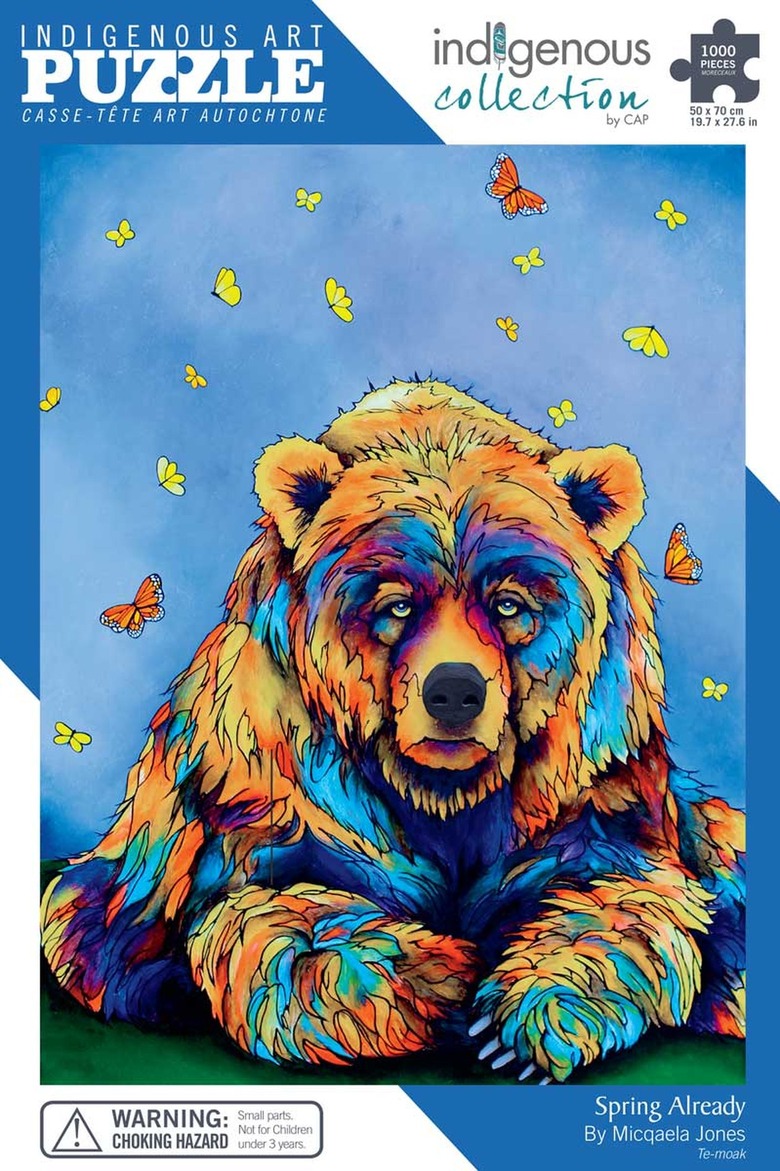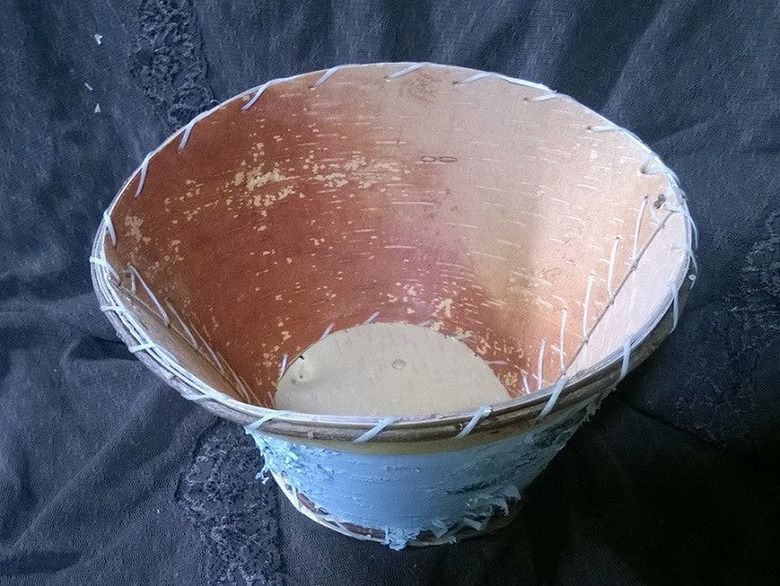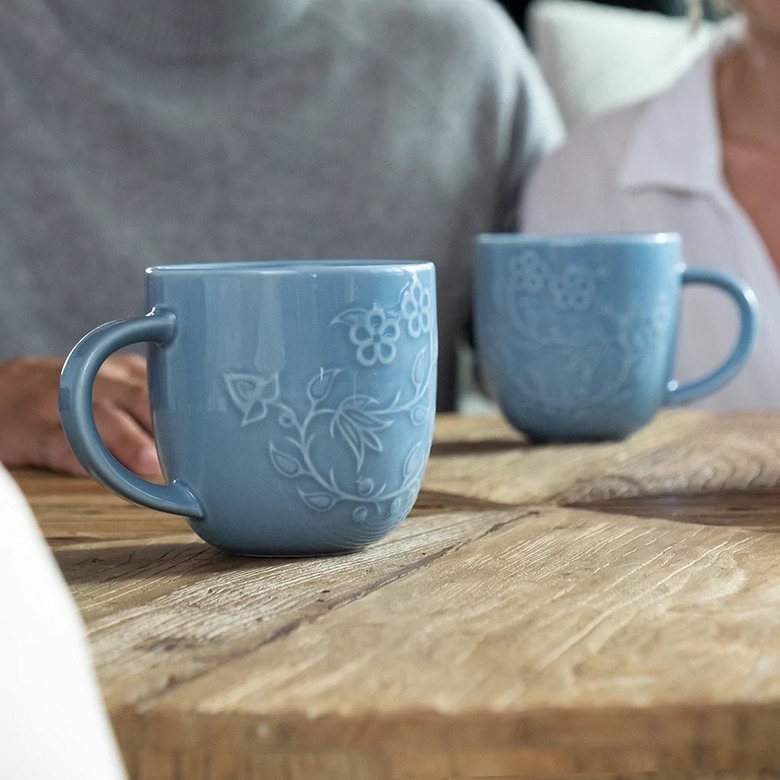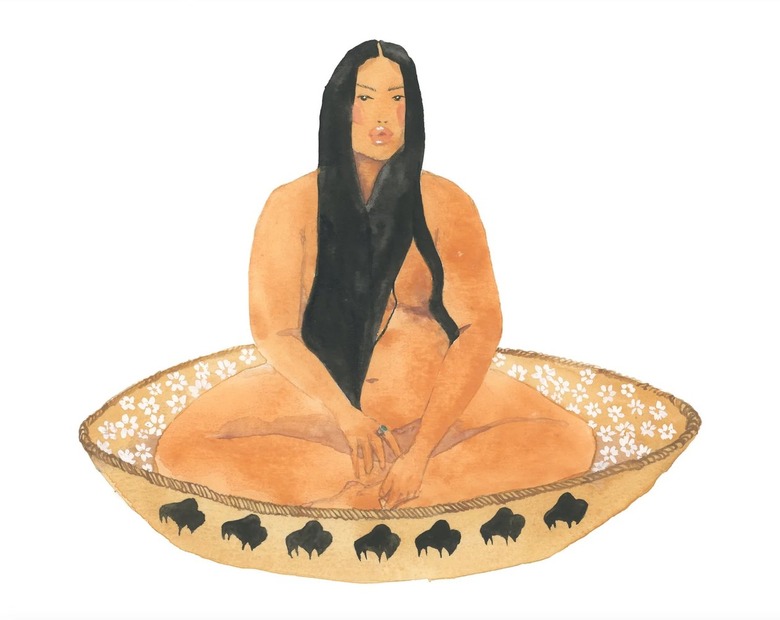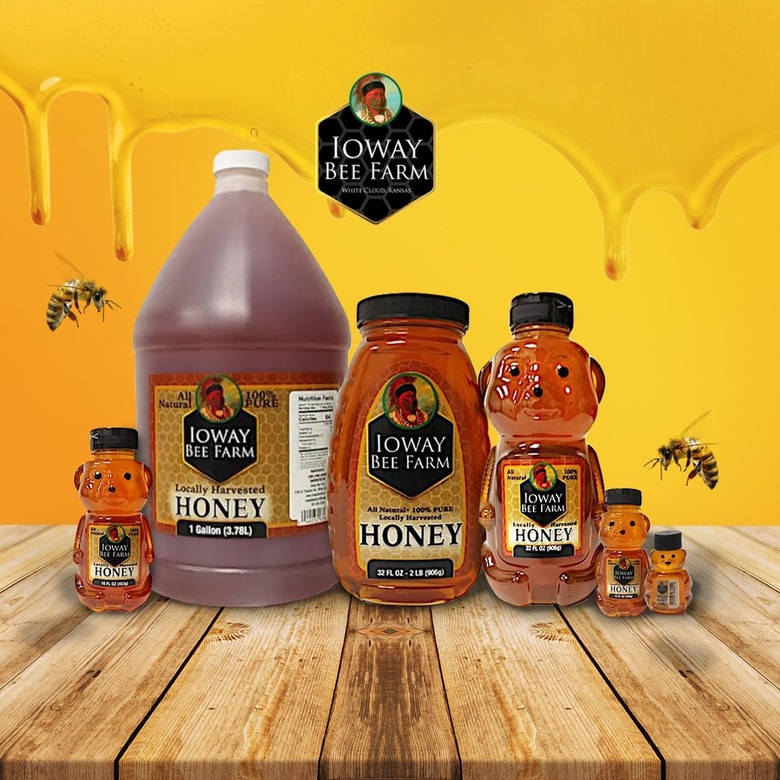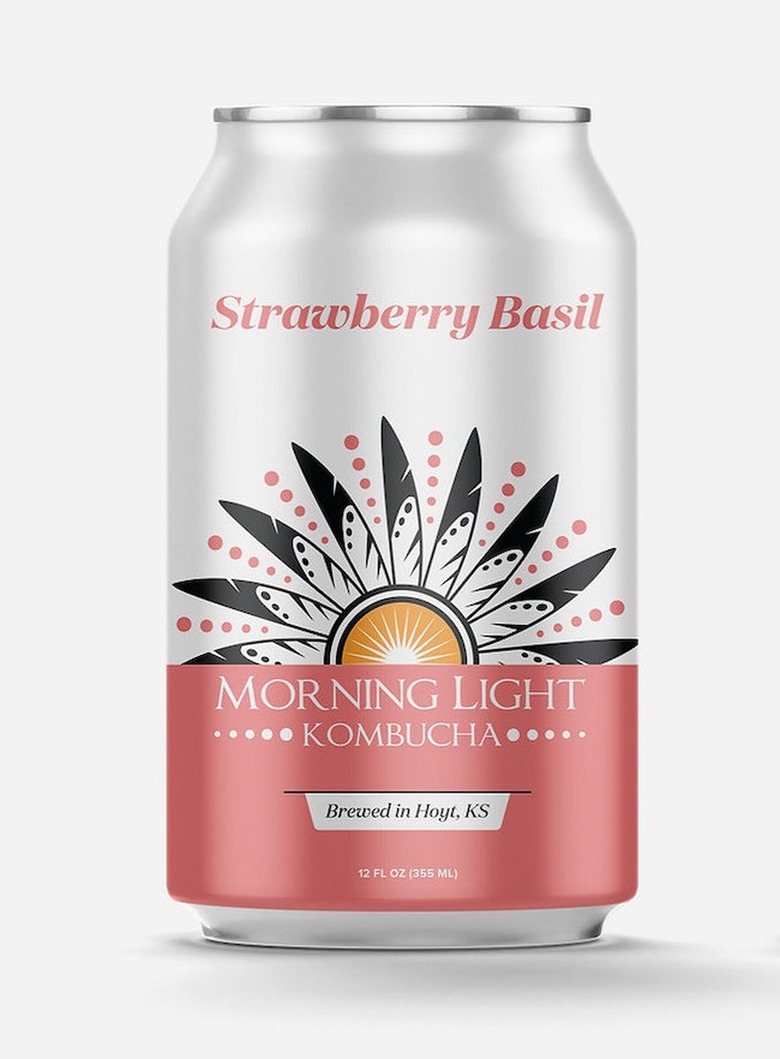28 Brands To Support This Native American Heritage Month (And Always)
Since 1990, the United States has designated November as "National American Indian Heritage Month" to serve as a time for Americans to celebrate and learn more about Indigenous contributions and culture. While this is a worthy goal, it's important that we work to support Native communities all the time — not just for 30 days every year — especially considering the violence and systemic exploitation they have historically faced.
A great way to start — emphasis on the word start, since there are many ways to be an ally — giving back to Indigenous communities is by buying from Native creators and Indigenous-owned lifestyle and home goods businesses. We're including some of our favorites below.
1. Kiyani Botanics
1. Kiyani Botanics
Named after founder Miranda Mullett's Navajo clan, Kiyani is a line of vegan soaps made with ingredients straight from the earth. Protecting our waterways is key to Mullett, so the brand is plastic-free and low-waste. Each soap is also biodegradable and housed in glass dispensers, which can be refilled with a concentrated soap packaged in recyclable aluminum bottles. "I was taught that as people, it is our responsibility to care for the earth," Mullett says in a press release. "To only take what we need and nothing more."
2. Birchbark Books & Native Arts
2. Birchbark Books & Native Arts
Birchbark Books & Native Arts is a Native-owned, Minneapolis-based independent bookstore founded by novelist Louise Erdrich in 2001. "Minneapolis and St. Paul have one of the largest concentrations of urban Native people in the United States," explains the shop on its Our Story page. "Birchbark Books provides a locus for Native intellectual life. We are Native-owned (Louise Erdrich is an enrolled Turtle Mountain Chippewa) and our staff is of either Native background, or exceedingly Native-friendly!"
3. Nani Chacon Art
3. Nani Chacon Art
On Instagram, Nani Chacon describes herself as a "Dinè x Xicana painter, muralist, [and] professional daydreamer." Located in Albuquerque, New Mexico, Chacon is known for using her work to examine the injustices BIPOC women endure, incorporating themes of modernism, traditionalism, and feminism into her creations.
4. 4KINSHIP
4. 4KINSHIP
Amy Denet Deal (Diné) founded 4KINSHIP (formerly known as Orenda Tribe) in 2015 because she wanted to support her community while honoring her Indigenous roots. Focusing on a sustainable design process involving handmade items, repurposed vintage, and upcycled textiles, 4KINSHIP aims to uplift Native artists and invest in land reclamation while selling items in the home and self-care, jewelry, and clothing categories.
5. Trickster Company
5. Trickster Company
In 2014, siblings Rico and Crystal Worl founded Trickster Company to advocate for Indigenous design. "As designers, we strive to represent the way in which traditionally rooted people represent themselves in modern context and fashion," reads the company's About Us page. "We focus on Northwest Coast art and explore themes and issues in Native culture and strive to represent a prestigious lineage of art in fresh and energetic ways as a celebration of Northwest Coast culture as it lives today."
6. Bedré Fine Chocolate
6. Bedré Fine Chocolate
In 2000, the Chickasaw Nation purchased the Bedré Fine Chocolate company, turning the small business into a national brand that makes tasty treats. According to its Our Story page, Bedré is the only brand of fine chocolate that has been created by a Native tribe. With this in mind, the recipes intend to honor the Indigenous, Mesoamerican people who first cultivated chocolate.
7. Eighth Generation
7. Eighth Generation
Owned by the Snoqualmie Tribe, Eighth Generation is a lifestyle and art brand that was founded in 2008 by artist and activist Louie Gong (Nooksack). Gong started by customizing shoes in his family room and now, Eighth Generation is the first Native-owned company to produce wool blankets. By selling 100% Native-designed products, the company strives to support artists while offering an ethical alternative to art that is "Native-inspired."
8. Séka Hills
8. Séka Hills
Séka Hills began as a business in 2010, equipping the Yocha Dehe Wintun Nation with a way to sell the premium products — olive oil, wine, honey, nuts, vinegars — they farm on their homeland, Northern California's Capay Valley. In caring for this land, the Yocha Dehe Wintun Nation continues to bond with its ancestors as they work to preserve their language, culture, and traditions.
9. Quw'utsun' Made
9. Quw'utsun' Made
"Arianna Johnny-Wadsworth is a proud daughter of the Quw'utsun'/Cowichan Tribes," reads the business's Our Story page. "She was born on Vancouver Island and raised in Vancouver, British Columbia, which has always been Unceded Coast Salish Territory. Quw'ustun' Made is a project to preserve the traditional knowledge of the Coast Salish Nation in order to pass it on to the next generations." Specifically, the brand is a modern skin care line that is designed to preserve ancestral medicines. It is currently based in Bellingham, Washington, which is Unceded Lummi Territory.
10. Indian Pueblo Store
10. Indian Pueblo Store
The Indian Pueblo Cultural Center was founded in 1976 by 19 Pueblo tribes of New Mexico to honor the art and culture of the Pueblo peoples. The Indian Pueblo Store is the retail-oriented branch of the cultural center, located in Albuquerque, New Mexico, that gives Pueblo and Southwestern Native peoples the opportunity to share and sell their work.
11. John Isaiah Pepion
11. John Isaiah Pepion
Through his work, artist John Isaiah Pepion strives to connect with his history and preserve the culture of the Blackfeet Nation in northern Montana. His biography reads: "John incorporates traditional design elements into colorful contemporary illustrations, leaving his work highly recognizable. Most importantly, John's art deepens his connections to self and place, providing him with a sense of strength."
12. Bison Star Naturals
12. Bison Star Naturals
In 2013, the idea for Bison Star Naturals was born when husband and wife team Angelo (a tribal member of Taos Pueblo) and Jacquelene McHorse started soap making as a hobby. In January 2017, they officially launched their business featuring soaps and lotions made with organic and locally sourced ingredients. Plus, in the future, the family-owned business hopes to expand to offer more body care products.
13. Beyond Buckskin
13. Beyond Buckskin
Jessica R. Metcalfe (Turtle Mountain Chippewa) founded Beyond Buckskin in 2009 to provide an online shop where customers can connect with Native American designers. In addition to clothing and accessories, the brand also has a section for home decor and blankets.
14. Virgil Ortiz Creations
14. Virgil Ortiz Creations
Pueblo artist Virgil Ortiz works to keep Cochiti pottery traditions alive. While honoring his Pueblo culture, the potter also creates using inspiration from his own stories and love of science fiction. "It's important to recognize that Pueblo communities are very much alive and have a level of vitality that speaks to generations of strength, persistence, brilliance, and thriving energy," reads Ortiz's About page.
15. Mahota
15. Mahota
As the first textile company created and owned by a North American tribe, Mahota was formed in 2018 by Chickasaw textile designer Margaret Roach Wheeler. With its blankets, pillows, and accessories, the company was created to honor creative Chicksaw women and the spirit of Mahota.
16. Visit Cherokee Nation
16. Visit Cherokee Nation
Visit Cherokee Nation is a cultural tourism effort that aims to educate visitors on the tribe's culture and history. Through its gift shop, you can also purchase art, books, gifts, and apparel.
17. Kempenich Studios
17. Kempenich Studios
Artist Hillary Kempenich is a member of the Turtle Mountain Band of Chippewa and uses her work to empower Indigenous peoples. "While living in a large rural non-indigenous community, I find myself working to sustain cultural ties for both myself, and fellow Native people," reads the artist's statement. "I also take this time to educate, empower, and create bridges for all communities." On Etsy, you can shop Kempenich's home decor, prints, face masks, apparel, and accessories.
18. Kitá Wines
18. Kitá Wines
Since its launch in 2010, Kitá Wines has been owned by the Santa Ynez Band of Chumash Indians and is run by winemaker Tara Gomez. The small-batch, sustainable wine brand's goal is to highlight Mother Earth's gifts while respecting the land of the Santa Ynez Valley.
19. Passamaquoddy Maple
19. Passamaquoddy Maple
Since raising enough funding for tapping, sugar house, and bottling equipment in 2014, the Passamaquoddy Tribe has been producing Grade A, organic-certified maple syrup, baking mixes, candies, and spices.
20. Ogahpah Coffee
20. Ogahpah Coffee
To improve the coffee offered in their casinos and eateries, the Quapaw Nation and the Business Committee founded Ogahpah Coffee in 2016. "Our passion for coffee drives us to create vibrant coffee selections that reflect, improve, and inspire our communities," the brand writes on its homepage. "Creating extraordinary experiences and memories for all our clients."
21. Rabbit Studios
21. Rabbit Studios
Traci Rabbit is the daughter of famed Cherokee artist Bill Rabbit and has continued on that legacy with her own original art. On her site, you can shop prints, originals, ornaments, and art tiles.
22. Northwest Native Expressions
22. Northwest Native Expressions
Owned by the Jamestown S'Klallam Tribe in Sequim, Washington, Northwest Native Expressions is an art gallery that features work from Native artists in Washington. In addition to prints and baskets, the retailer also sells puzzles, textiles, mugs, and more.
23. Native Harvest
23. Native Harvest
Native Harvest sells Ojibwe products — such as baskets, pantry items, and decor — to benefit the White Earth Land Recovery Project, which aims to promote the restoration of the White Earth Indian Reservation in northwestern Minnesota. In addition to reinstating traditional land stewardship practices, the project works to support language fluency, cultural and spiritual heritage, and community development.
24. Heart Berry
24. Heart Berry
Founded by Sarah Agaton Howes (Anishinaabe) in 2019, as a part of the Inspired Natives Project, Heart Berry brings traditional Ojibwe floral and woodland designs into one's home. Along with wearable art, the brand sells blankets, mugs, and notebooks.
25. Sequoia Soaps
25. Sequoia Soaps
In 2022, Michaelee Lazore — who is Kanien'kehá:ka (Mohawk) from Akwesáhsne and Northern Paiute from Nevada — founded Sequoia Soaps. However, the brand doesn't just sell soap. It currently offers bath bombs, face and body scrubs, lotions, lip balms, and candles.
26. Aly McKnight
26. Aly McKnight
As part of the Shoshone-Bannock Tribes, 31-year-old, Utah-based artist Aly McKnight conveys Indigenous stories in her watercolor and graphite works. Her goal is to share an Indigenous perspective with the world.
27. Ioway Bee Farm
27. Ioway Bee Farm
Featuring honey from bees located in northeast Kansas, southeast Nebraska, and northwest Missouri, Ioway Bee Farm sells cosmetics, candles, bee pollen, and of course, various types of honey. The brand was founded in 2017 by the Iowa Tribe of Kansas and Nebraska, providing natural, tribal-owned honey to kitchens everywhere.
28. Morning Light Kombucha
28. Morning Light Kombucha
Founded in 2016 by Melinda Williamson, northeast Kansas' Morning Light Kombucha believes that food is medicine. The company's objective is to support and nourish its community with its efforts in sustainability, by maintaining relationships with local farmers, and by donating 10% of all sales to Native American organizations and efforts.
